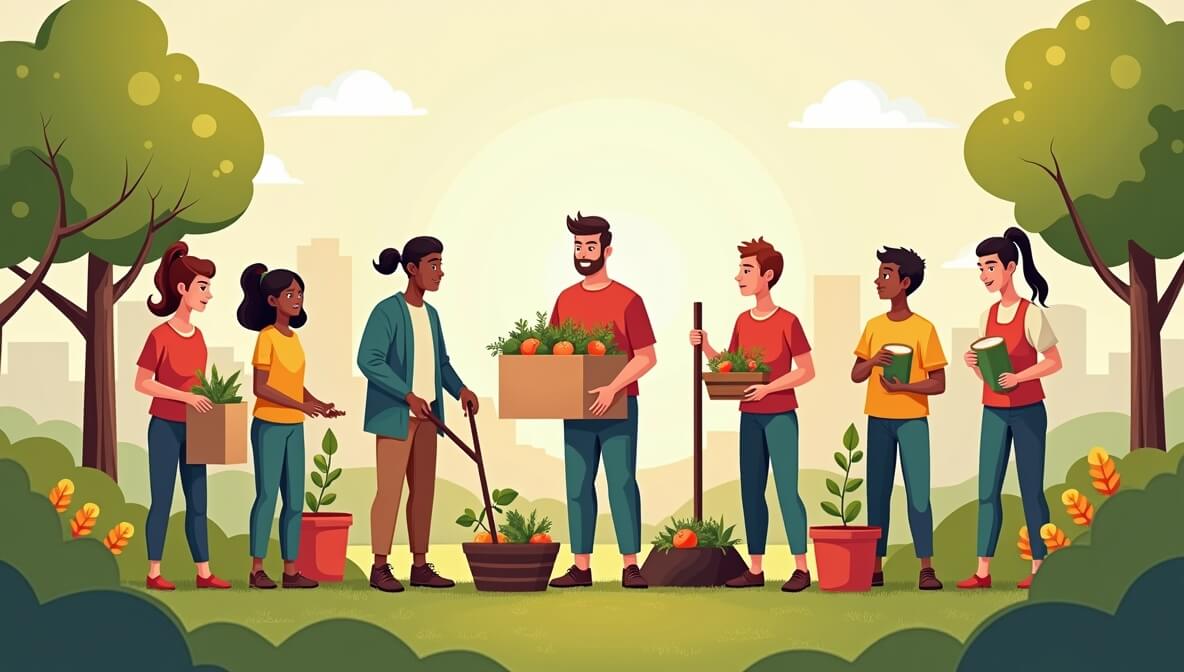August 29, 2025

Volunteering is more than a selfless act—it is a powerful driver of social justice, equity, and community well-being. Across the world, individuals who give their time and skills help reduce disparities, strengthen civic participation, and improve quality of life for millions.
From mentoring youth to supporting food banks, volunteers become the human bridge between resources and those who need them most. This guide explores how volunteering contributes to key social justice goals and why it remains vital for building stronger, fairer communities.
Education is often called the “great equalizer,” yet many face barriers due to poverty, underfunded schools, or lack of access to resources. Volunteers help level the playing field:
Related resource: The Future of Learning: Innovations in Education highlights programs bridging educational gaps.
Stat: Students with mentors are 55% more likely to enroll in college (The National Mentoring Partnership).
Story: In rural India, volunteers helped set up libraries and digital learning labs, giving children access to educational tools previously unavailable.
Food insecurity is both a social justice issue and a public health crisis. Volunteers are the backbone of food pantries, soup kitchens, and community gardens.
Related resource: Addressing Youth Homelessness explores systemic issues intersecting with hunger and poverty.
Stat: According to Feeding America, volunteers make up nearly 2/3 of the workforce at local food banks.
Story: In Detroit, community volunteers transformed vacant lots into thriving gardens. Produce feeds families and creates local jobs, showing how food justice and economic justice overlap.
Caring for children, seniors, and people with disabilities ensures dignity and equality in society. Volunteers often step in where formal systems fall short.
Related resource: Supporting Caregivers: Resources and Tips highlights volunteer support for family caregivers.
Stat: The National Alliance for Caregiving estimates over 53 million Americans provide unpaid caregiving.
Story: In rural India, volunteers visit elders weekly—delivering food, helping with chores, and teaching them to use smartphones to connect with loved ones.
Volunteers contribute by equipping individuals and communities with skills for long-term growth.
Related resource: Microfinance: Empowering Entrepreneurs in Poverty shows how volunteer support helps marginalized communities access credit.
Stat: Small businesses mentored through volunteer networks like SCORE report higher survival rates.
Story: A volunteer-run coding bootcamp in Nairobi helped hundreds of young women secure tech jobs, breaking cycles of poverty and gender inequality.
Healthcare gaps often mirror broader social inequities. Volunteers expand access and bridge divides.
Related resource: Building a Strong Immune System emphasizes community-driven health initiatives.
Stat: Community health volunteers deliver essential care to over 1 billion people worldwide (World Health Organization).
Story: In Nepal, volunteer midwives have significantly reduced maternal mortality by providing prenatal checkups and safe delivery support in remote villages.
Volunteering operates both locally and globally. In the U.S., programs like AmeriCorps mobilize citizens to strengthen communities. Globally, the United Nations Volunteers (UNV) program enables professionals to serve in peacebuilding, humanitarian aid, and sustainable development.
This dual perspective shows that volunteerism is a universal tool for justice—whether tutoring in your neighborhood or contributing skills abroad.
Volunteering is not charity—it is solidarity. Every individual can contribute time, expertise, or compassion:
The time to act is now. Volunteers are catalysts for equity, dignity, and opportunity, creating communities where justice belongs to all.
Stay up to date with the latest tips, expert insights, product reviews, and step-by-step guides to help you grow, create, and succeed—no matter your industry or passion.